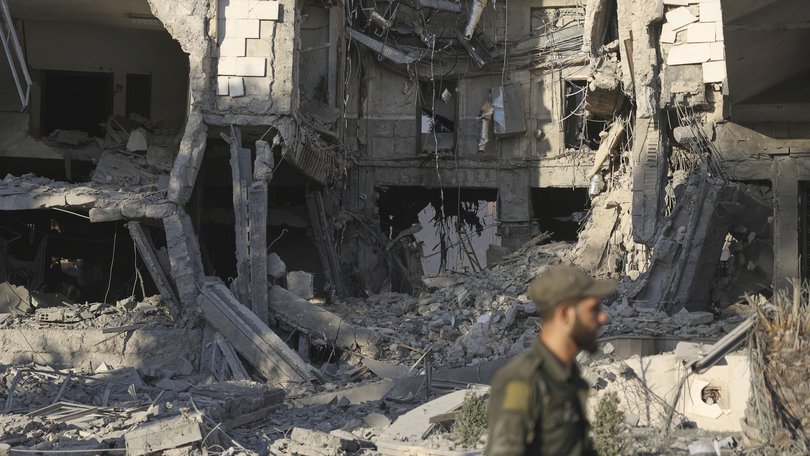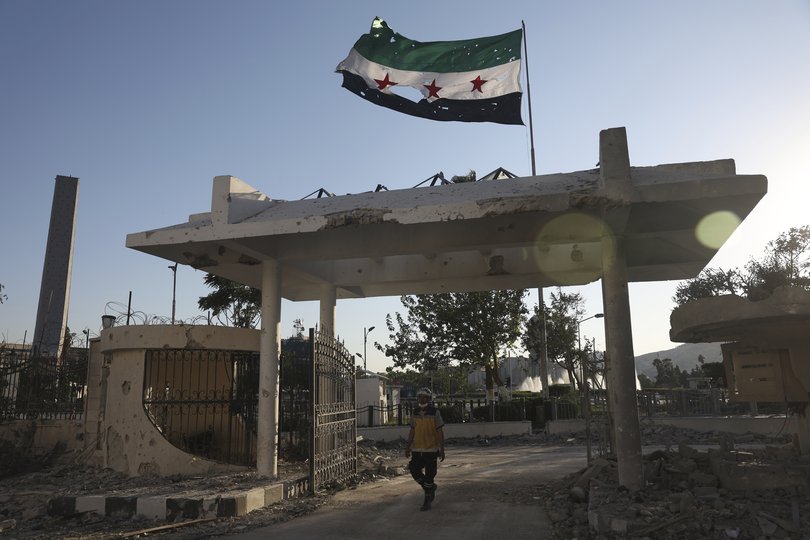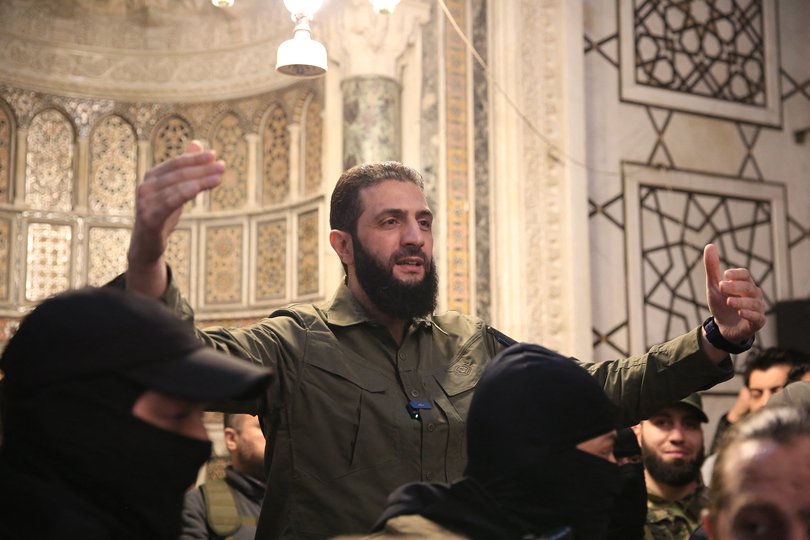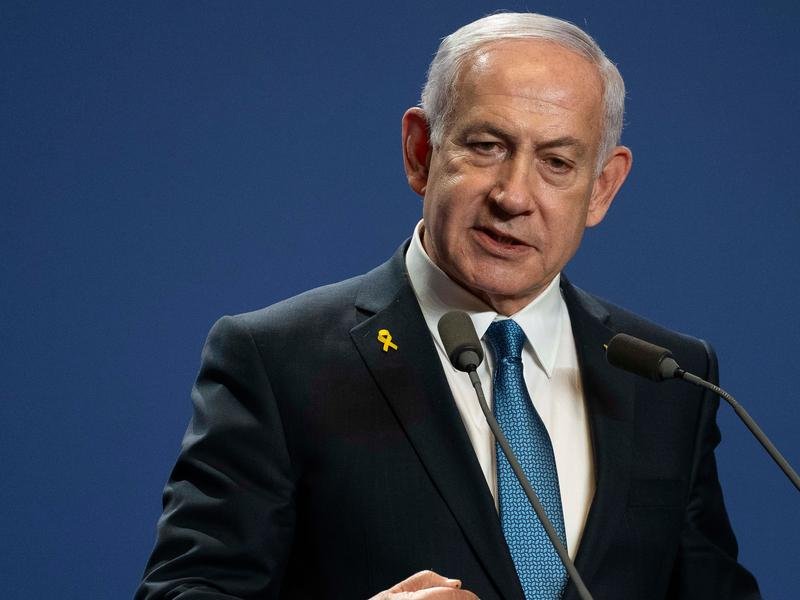THE ECONOMIST: Why did Israel strike Damascus? What happens next depends on Israel’s Netanyahu, Syria’s Sharaa
EXPLAINED: Israeli warplanes struck Syria’s capital, Damascus, on Wednesday, targeting the presidential palace, the defence ministry and the army command following an outbreak of violence.

Plumes of smoke rose over Damascus on July 16th as Israeli warplanes struck Syria’s capital. Targeting the presidential palace, the defence ministry and the army command, the attack killed at least one person and wounded several others.
The strikes followed an outbreak of sectarian violence in the predominantly Druze province of Suwayda in Syria’s south-west.
Hundreds of people have been killed in recent days in clashes between Bedouins, Druze militias and Syrian Government forces and by Israeli air strikes.
Sign up to The Nightly's newsletters.
Get the first look at the digital newspaper, curated daily stories and breaking headlines delivered to your inbox.
By continuing you agree to our Terms and Privacy Policy.Israel says the purpose of the strikes, both in the south and in Damascus, was to end a Syrian Government assault on the Druze and to enforce the demilitarised zone it had declared around Suwayda after the overthrow of Bashar al-Assad’s regime in December.
Yet it is unclear whether the episode will make either the Druze or Israel any safer. In the short term, it is likely to weaken Ahmed al-Sharaa, a former Sunni jihadist and Syria’s interim president, as well as make it harder for Syria and Israel to reconcile, as America has been pushing them to do.
Depending on what Mr Sharaa and Mr Netanyahu decide to do next, it is also likely to foment more instability in Syria.
One reason for the escalation is Mr Sharaa’s push to subdue Syria’s minorities, including the Druze, rather than reconcile with them and integrate them into a pluralist state.
After the kidnapping of a Druze merchant on July 11th sparked clashes between local fighters, jihadist groups and Druze militias in Suwayda, he sent Government troops to intervene, apparently keen to use the incident to establish control over the south-western province on the pretext of halting the violence.

Local Druze leaders offered to capitulate to the Government and hand over their weapons, according to a mediator. But Mr Sharaa’s decision to send troops had already set off a jihadist frenzy.
Scores of Druze were killed in violence that recalled the massacre of hundreds of Alawites in March. Some had their trademark moustaches shaved off by their tormentors, with videos of the humiliation circulating on social media.
“Déjà vu,” says Jalal Messady, a Syrian conflict-resolution expert.
Back in March, no one came to the aid of the Alawites. Many Syrians thought they deserved their comeuppance given their loyalty to Mr Assad, an Alawite. But the Druze, an esoteric sect who number some one million across the Levant, are strongly represented in the Israeli army.
As Mr Sharaa sent troops to Suwayda, Druze communities across northern Israel demanded their Government come to the rescue of their Syrian brethren. They blocked northern roads, broke through the border fence with Syria and secured a meeting with Mr Netanyahu, Israel’s Prime Minister, who agreed to intervene in the conflict.

Mr Sharaa’s aspiration to make Syria a source of regional Sunni supremacy rubs up against Israel’s hegemony and its self-declared role as protector of the region’s minorities. But reconciliation between the two had recently seemed on the cards.
US President Donald Trump is keen for Syria to join the Abraham Accords, a set of peace treaties between Israel and a group of Arab states. A draft non-belligerence pact would have parked Syria’s claims to the Golan Heights, which Israel conquered in 1967 and later annexed, and paved the way to normalisation.
Mr Sharaa has absorbed repeated Israeli strikes on the military hardware he inherited from the Assad regime and held fire when Israel pushed east of its armistice lines.
He is said to have met Israeli officials during his visits to the United Arab Emirates and Azerbaijan. For months, his commanders in the south coordinated their military manoeuvres directly with Israeli army officers.

A deal now looks elusive. Mr Netanyahu appears to have calculated that the use of military force improves Israeli security as well as his political standing at home. Appearing strong in the face of potential threats elsewhere may provide room for manoeuvre in negotiations for a ceasefire in Gaza. Yet it also risks fanning, rather than quelling, sectarian violence in Syria.
Much depends on what Mr Sharaa does now.
Leaving the Druze entrenched will unsettle his jihadist base and embolden the country’s other minorities, particularly the Kurds, who continue to resist his drive for central control.
It may, in effect, mean accepting Israeli control over southern Syria. But renewing the offensive risks deepening instability and alienating not just terrified minorities, but the Sunni mainstream and his Western backers.
“Force and revenge create more enemies than friends,” says a Druze student in Syria.
Many in the region will be hoping that this week’s events do not set off yet another cycle of violence.
